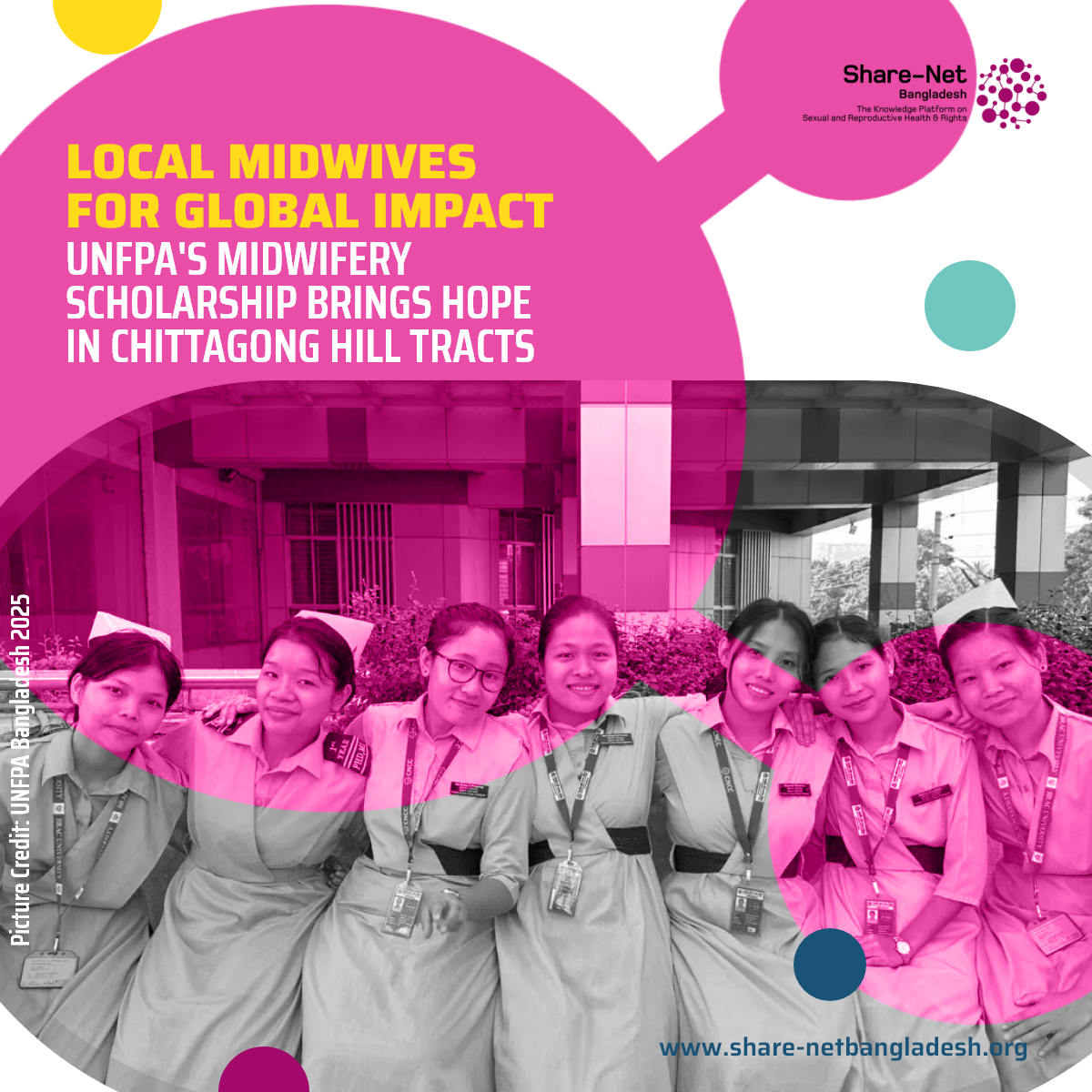Local Midwives For Global Impact: UNFPA’s Midwifery Scholarship Brings Hope in Chittagong Hill Tracts
In the picturesque yet remote Chittagong Hill Tracts (CHT), an exceptional initiative by UNFPA Bangladesh is transforming the landscape of maternal and reproductive health. With scholarships awarded to seven indigenous girls from marginalised ethnic communities, the program is paving the way for a more inclusive healthcare system in Bangladesh’s most underserved region.
Comprising Bandarban, Khagrachari, and Rangamati, the CHT is home to over 11 diverse ethnic groups, each with its own language and culture. The region faces significant challenges in healthcare delivery, from rugged terrain to cultural and linguistic barriers, leaving many communities without access to basic maternal and sexual health services.
“This scholarship is a dream come true. I can now become a midwife, serve my community, and even aim higher for the future,” said Hla Sang U Kheyang, one of the recipients. For Hla Sang and six others, this opportunity is more than an education—it’s a chance to be agents of change.
Maternal health in CHT has long been in crisis, with a high prevalence of home deliveries due to a lack of skilled healthcare providers. Nationally, Bangladesh has reduced maternal mortality to 136 per 100,000 live births, but in remote areas like CHT, the rate remains alarmingly high. Midwives trained through this program will address this gap, providing life-saving care, from antenatal and postnatal checkups to safe deliveries and access to contraceptive services.
Midwifery plays a critical role in reducing maternal deaths and improving sexual and reproductive health rights (SRHR). Globally, midwives can avert over 80% of maternal and newborn deaths, according to the World Health Organization. By training indigenous midwives, UNFPA Bangladesh is tackling not just health inequities but also fostering cultural competence in healthcare delivery.
The scholarships, funded by Sweden (SIDA) and Canada (GAC), and supported by the Bangladeshi ministries of Health and Chittagong Hill Tracts, enable recipients to study at top private midwifery institutions. This partnership is a model for effective collaboration between governments, development agencies, and private institutions to drive equitable healthcare solutions.
Since the program’s inception, 17 indigenous midwives from marginalised communities across Bangladesh have graduated. These women now serve as the backbone of healthcare in their areas, ensuring that essential SRHR services—like access to safe abortions, family planning, and postnatal care—reach those who need them most.
“The initiative goes beyond education; it’s about creating changemakers,” noted UNFPA Bangladesh. By empowering local women, the program not only saves lives but also inspires hope and resilience in their communities.
This initiative aligns with Bangladesh’s commitment to achieving Sustainable Development Goal 3, aiming to reduce maternal deaths to 70 per 100,000 live births by 2030. In the CHT, the new midwives will be key players in achieving this goal, proving that inclusivity and diversity are essential pathways to equity in healthcare.
Source: United Nations Bangladesh
Picture Credit: UNFPA Bangladesh 2025

